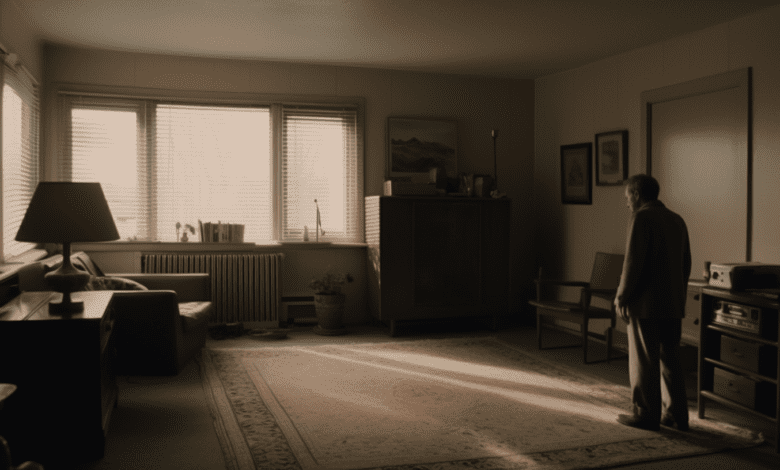
The government recently launched a registration scheme for short-term lets in the UK following concerns about inconsistencies within the regulatory framework for the guest accommodation sector, compared with those that apply to hotels and B&Bs. The government noticed that it is “difficult to monitor compliance” with key health and safety regulations in the short-term, given the lack of an authoritative data source. UKH claimed that they have been campaigning to make the registration scheme for short-term lets mandatory since COVID. Kate Nicholls, chief executive of UKHospitality, explains how the new registration scheme will drive real change and level the accommodation playing field.
How long have you been campaigning for the short-lets registration scheme?
Well, this was an issue that emerged before the Covid pandemic. So, we have been working on it since about 2017–2018, when problems first started to emerge with the proportion of short-term lets that we had growing in town and city centres and the impact that was having on rural, coastal and tourism destinations. Following that, we began working through the Covid period with the government to try and make sure that we had an effective piece of legislation that could address the problems that had been highlighted.
What issues will this scheme help tackle?
First and foremost, the main problem that people have in this area is a lack of transparency; there is an inability to identify what premises are being used for short-term lets, residential use, second homes, or holiday accommodation. Because of this, local authorities can’t plan their facilities, services and resources; they can’t determine where it is appropriate to allow new holiday and tourism development. They also can’t plan housing and that’s what appears to be housing stock. These houses are not available for long-term lease or purchase, and therefore there is a disconnect between being able to plan for local residents, workers and the economy that is needed for tourism.
So, it’s a lack of transparency that this is really trying to address. Secondary to that is that once you know and identify where these premises are and for what purpose they are being used, you can then make sure that they are taxed, regulated, and controlled appropriately. Then the local authority can determine the best use of those resources and make plans accordingly. Lastly, it’s about making sure that the balance is right between the needs of residents, businesses and the sort of local tourist economy.
Do you think the registration scheme for short-lets is an effective form of regulation?
I think this would be effective because it makes sure that all forms of let accommodation, where it is let for commercial use, are appropriately recorded. We can then identify which businesses in which premises are being used, we can identify which premises remain available. It also makes sure that they can all be tax-regulated, treated, and controlled appropriately to make sure that customers are kept safe.
I mean, first and foremost, you want to make sure that the accommodation that is on offer in the UK tourist economy is safe, legal, and compliant, and we can’t do that at the moment. So, it makes sure that customers are kept safe, it makes sure there’s a level playing field for businesses, and it makes sure that the local authority can control and identify where these businesses are and then make the plans as necessary for local resources. So, I think this would be an effective method. The number of problems that come up will manifest themselves differently in different locations. But they’re all rooted in a lack of transparency and a lack of ability to identify where these premises are. The registration scheme will help resolve this issue.
How would the registration scheme level the accommodation playing field?
It primarily levels the playing field for those businesses that provide guest houses, bed and breakfast accommodations, and self-catering, where they are operating as a business. They are taxed as a business, both in terms of business rates and also the tax that they earn on those premises and manage those premises. They also must meet a minimum level of safety, compliance, and fire safety, as well as be licensed. So, they are in a controlled environment. At the moment, they are meeting all of those regulatory requirements, so the local authority knows where they are. Because of this, it can tax and control them and make sure that everything is safe.
You don’t have that on the other side, and therefore, those premises that are created and developed as residential accommodation are not necessarily meeting the same compliance requirements that you would expect from a commercial business in terms of being let out. There is no certainty around safety as well. So first, it’s about making sure that they’re safe, legal and compliant. That is the foundation for levelling the playing field because it ensures that small businesses, regardless of the format in which they are renting out space, are treated fairly and do not incur disproportionate expenses.
What would the loopholes be if the registration scheme is voluntary?
I think the government was consulting about different options and looking at voluntary versus mandatory. But the recommendation and the consultation now revolve around a mandatory licensing scheme. The main thing we need is that it applies to everyone. We know from experience in other jurisdictions across the world that if a law is optional and lacks penalties, it won’t fulfil the policy goals of those countries or accomplish what the government is trying to do with this legislation.
As a result, it must be universally applicable and apply to anyone who offers lodging for a fee. The government is still considering whether to make it a voluntary programme that local governments choose to implement and, in our opinion, that programme is pointless until it is implemented on a national level.
What regulatory problems do you feel the new scheme doesn’t address?
According to me, it depends on how extensive the plan would be. It will fail if there are exceptions, large business types that it doesn’t apply to, or any places where there are loopholes. I believe that the government is currently considering whether or not guest houses, bed and breakfasts, and professional self-catering should be included. In order to give local governments that degree of transparency and control and to create a level playing field, it must apply to all of them equally. I think that is where the government will fail if it chooses a less desirable option.
How else can the government guarantee that short-term rental consumers receive high standards of health and safety?
Without a registration scheme, you cannot ensure that the accommodation being offered is safe, legitimate, and compliant. You cannot promise that anything on any of the platforms for short-term rentals will be legal and meet those minimal safety requirements. Customers assume that it does, that they will be insured, and that the very minimum fire, health, and safety laws are adhered to. And that’s just not true.
You cannot ensure that the minimum set standard is met without mandatory registration and a check—a light-touch regulatory check nonetheless. So, the first step is visibility. The second step is that it’s mandatory and you have to check that the minimum standards are met. So you have to have a registration scheme that identifies the premises; it has to cover everybody; you then need a series of checks on standards, and that has to be comprehensive enough to make sure that the guarantee is there that it’s safe and legal.
Do you think the successful regulation of the short-term let market will see consumers possibly returning to more traditional accommodation such as hotels?
That is possibly one of the consequences. I think the success of the UK tourism scene is that it has diverse, vibrant types of accommodation that appeal to all budgets and all types of travellers, and there is no doubt that short-term lets will continue to appeal to many who want to have that ability to live as a local. I think what it will do is make many of the operators think carefully about how they use their premises and hopefully there is room for all sides to be able to continue to make a commercial offering available to customers.
How would you like to see the level of regulation in five years time?
I don’t want to see an increase in regulation. I believe there are regulatory frameworks in place; the issue is ensuring that anyone providing lodging for a fee complies with them. And make sure there is a check on that so that customers can have the assurance that whoever is delivering it satisfies that same minimal standard of safety wherever they are going and wherever they book.









